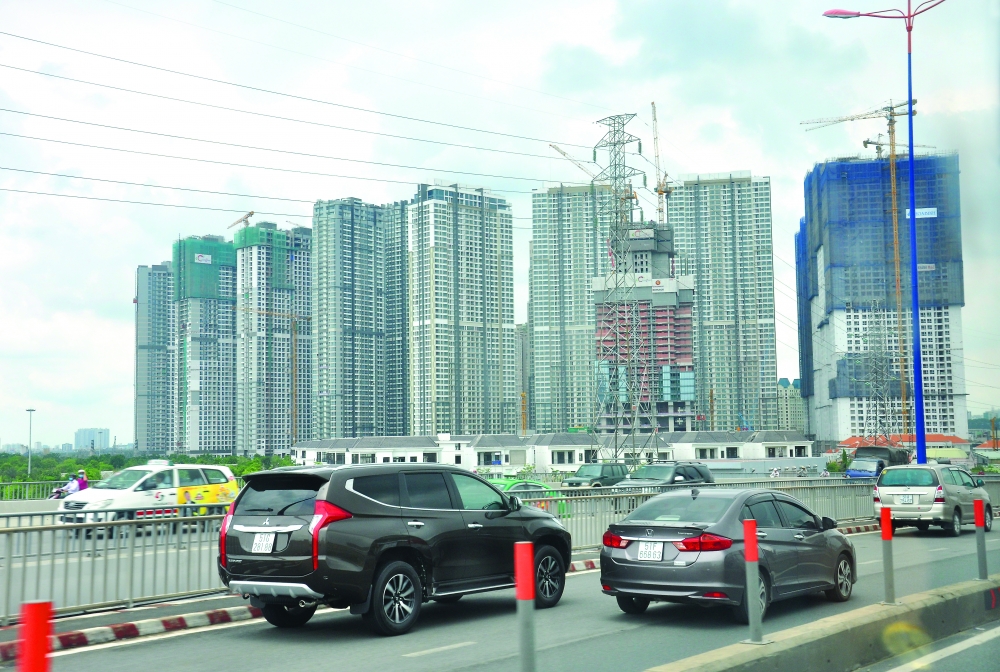
Real estate supply is expected to decline in the coming time.
Decreasing supply
A recent report by the Vietnam Association of Real Estate Brokers (VAREB) shows that the quantity of apartments and villas for sale in Hanoi and Ho Chi Minh City is equal to about 70 percent of that in the fourth quarter of 2018. In Ho Chi Minh City, the number of construction licenses has decreased 16 percent, while 150 real estate projects have been halted for inspection.
Chair of the Vietnam Real Estate Association (VNREA) Nguyen Tran Nam said this declining trend is expected to persist. A representative of the Vietnam Association of Realtors (VARs) said the real estate market in the first quarter showed sign of slowing down, especially the housing supply at two major markets of Ho Chi Minh City and Hanoi.
The decline is attributed to the slow process of approving new projects and limitation on credit growth.
Nguyen Manh Khoi, Deputy Director of the Housing and Real Estate Market Management Agency under the Ministry of Construction said real estate supply, especially of average-price apartments, decreased in the first four months of 2019 compared to the same period last year. Meanwhile, deluxe apartments priced at VND200-300 million per square meter have gone on the market in some big cities.
Khoi said the development of social housing (housing for low-income earners and people who are beneficiaries of state preferential policies) has lagged behind in recent years despite policies adopted by the government and the National Assembly to boost this segment’s development. Existing social housing has so far satisfied only 33 percent of the demand, he said.
High demand
High purchasing power, demand and market liquidity are the strongest points of Vietnam’s real estate market, VNREA Chairman Nguyen Tran Nam said. UN data show that people in countries with an annual per capita income of US$1,000-10,000, such as Vietnam, tend to spend a major part of their income to buy housing.
Economist Can Van Luc: Industrial real estate and housing markets still have room for development. Meanwhile, the tourist real estate market lacks a legal framework to develop, although solving this problem is not complicated at all.
Therefore, the real estate market is expected to remain good in the medium and long term, as urbanization increases and one million people move from rural to urban areas each year on average, Nam said. Vietnamese in general prefer to invest their money in the form of real estate, and real estate businesses are concerned about meeting this demand and providing the market with the best quality products and services, he added.
Many businesses have eyed tourist, industrial and office-for-lease real estate markets to meet the growing accommodation and office space demand as a result of increasing investment in the country.





















